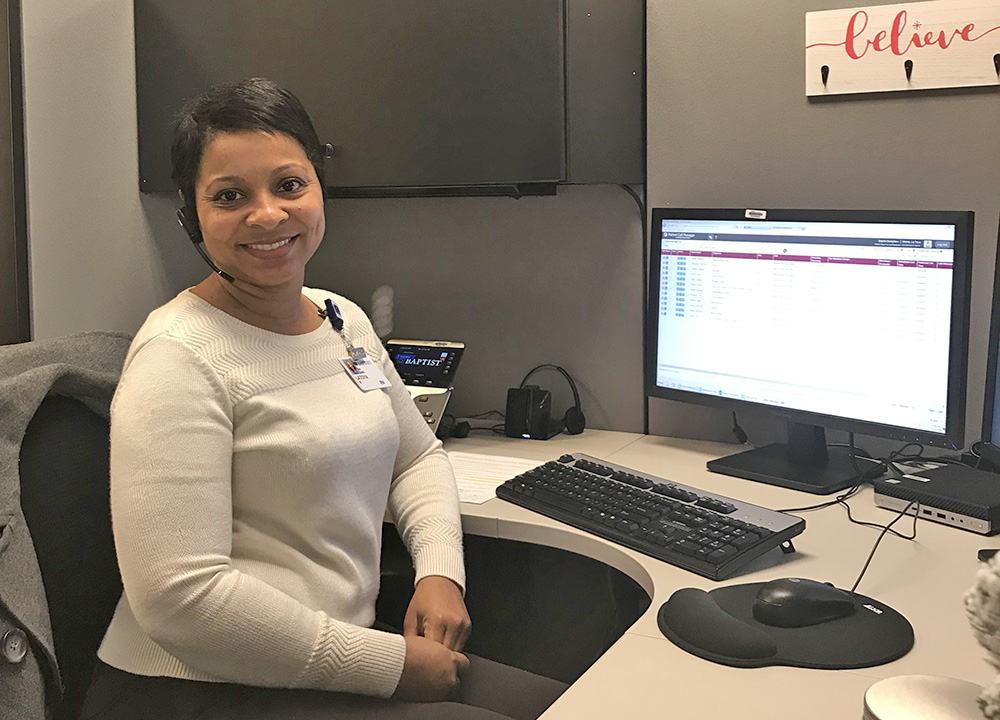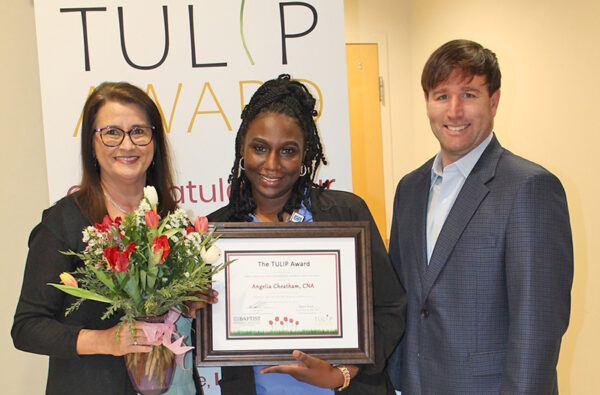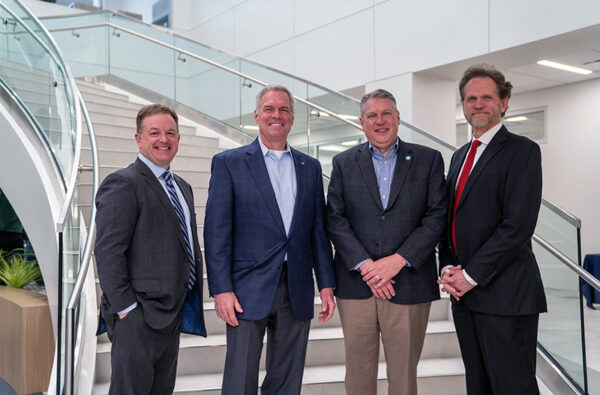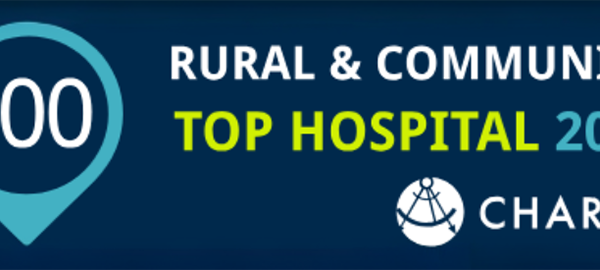Research shows post-visit discharge calls to hospital inpatients deliver multiple benefits, including reduced readmissions, better care at home and an improved patient experience, which leaves patients feeling the organization has compassion and empathy for their situation.
In an effort to standardize our post-acute care discharge call process to ensure consistency of quality, Baptist recently created an internal, centralized patient discharge call center. The center went live on Dec. 10, 2018, making follow-up calls to patients discharged from one inpatient unit at Baptist Memphis, and it has since begun making calls to discharged patients from a second unit. LaToya Harris, RN, is our first nurse hired to staff the center.
The new center is the culmination of three years of research led by Stephanie Clark, chief learning officer; Susan Ferguson, vice president and chief nurse executive; and Nancy Averwater, vice president of human resources and chief human resources officer. Partnering with the Studer Group, the threesome obtained a grant for the center from the Baptist Foundation.
“During a ‘current state’ assessment, we found that some patients were being called as often as nine times from different areas,” said Stephanie. “We just were not seeing the quality outcomes we wanted. Now with the new center, we are. LaToya has completed full discharge calls on 94 patients and found that 69% required additional treatment or teaching about medications. And 31% needed assistance on discharge instructions. So we were able to provide additional care to meet their needs at home, versus a potential readmission. That is huge.”
Suzanne Harvey, system director of care coordination and the discharge call center, said centralized calling is a “great way to cut to the chase and ask a patient, ‘What questions do you have about how to care for yourself at home or about your medications?’ Because at discharge, patients’ minds are on so many things, and they may forget the instructions the nurse gave them. Some patients have 15-30 pages of discharge instructions, making it especially cumbersome for Medicare patients to know what’s important. Plus, LaToya is very calming and has helped de-escalate a few patients who were anxious or nervous about being at home after a long or complicated hospitalization.”
Suzanne shared some of the positive feedback the center has received from patients:
“Thank you so much for calling to check on me. I had questions regarding my medications and when I needed to go back to the doctor. This is a great service that you are providing.”
“The care at the hospital could not have been any better, and then to receive a follow-up call is a great plus. I am so pleased.”
“This makes me feel so good that someone is calling to check on me and that you care about my health and well -being.”
As for future goals, Stephanie says, “We want to identify trends where we can be proactive prior to discharge.”
The center will grow to six RNs and will be performing all inpatient discharge calls for Baptist Memphis, Baptist DeSoto, Baptist North Mississippi and NEA Baptist Hospital by this spring. Discharge calls for all other Baptist Memorial hospitals will be initiated in phases in 2020.






